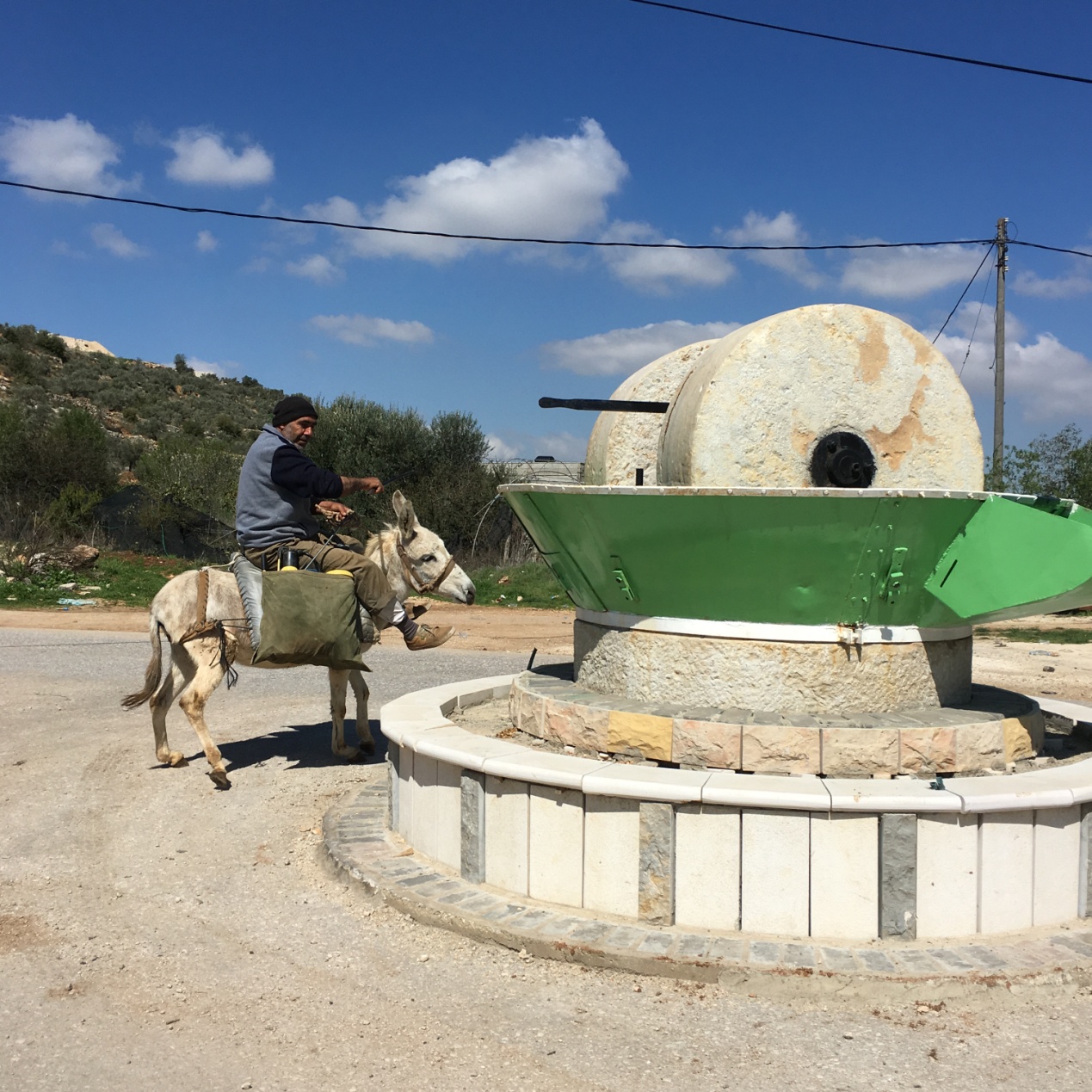A Sawiya
The threat of the settlements Ma’ale Levona, Eli and Rehelim, which dwell on the mountain ridges around the village, is very tangible. Sewage continues to float from Rehelim to the lands of Sawiya. The installation of a modern sewage system in the village is a faraway dream. This is perhaps the reason that there is interest in the village in alternative plans.
We left Rosh Ha’Ayin, on our way to Sawiya, at 09:30. At the entrance square of the village there are enormous ancient millstones. They were there on our former visit too, but then we were less aware of the utilization of ancient working tools.
The secretary of the village welcomed us, after we had coordinated the visit with him the day before. The water problem does not exist now, in the winter. The leak in the gate valve on which we reported on our visit of July 2016 had been repaired a month later by the Mekorot company. There were no further tree fires, in addition to the ones we reported on then. The sewage still flows from the Rehelim settlement to the plots of the village. We asked whether we could see where the sewage flowed. We were answered that it was possible to reach the lands only during the plowing. On the 23rd they were supposed to enter to plow, but the civil administration had, for some reason, postponed the plowing and had not fixed a new date.
had, for some reason, postponed the plowing and had not fixed a new date.
We brought up the idea of using dry lavatories in order to save on the payments for the pumping of cesspits and to protect the environment. This was the first time we noticed that there was interest in the proposition and we were asked to send by e-mail material on the subject, in English. We also talked about the omnipotent composter, which is able to absorb domestic organic waste and to produce domestic gas and fertilizer. We were asked to send material on that as well.
We asked whether they were interested to receive our visit reports which are put on the site. Yes, in English.
On the way back Mustafa remembered that he had read on the Facebook in Arabic about people in Nablus who had succeeded in installing the composter by themselves, and had also left instructions for its setup. He hadn’t kept the item. We asked that he try to reconstruct and to send it to us, so that we would be able to connect the producers with the people of Sawaya who were interested.
We met R. at the entrance to Karawat Bani Hassan. Irit has reported on the confiscation of R.’s tractor and the court ruling, ordering to return to him the guarantee which he had paid, if no bill of indictment be submitted within 6 months.The purpose of the meeting was to accompany him to the Ariel police station to find out how he could get the money back. R. thought it would be better to go to the postal bank at Barkan where he had paid the money and find out from them what should be done. We agreed. Until we reached Barkan we understood that this was useless and we decided to try and consult first the organizations which deal with these matters, like Yesh Din, and the Center for the defence of the individual.

Our visit this time was short. We arrived at Rosh Ha’Ayin at 12:10.
